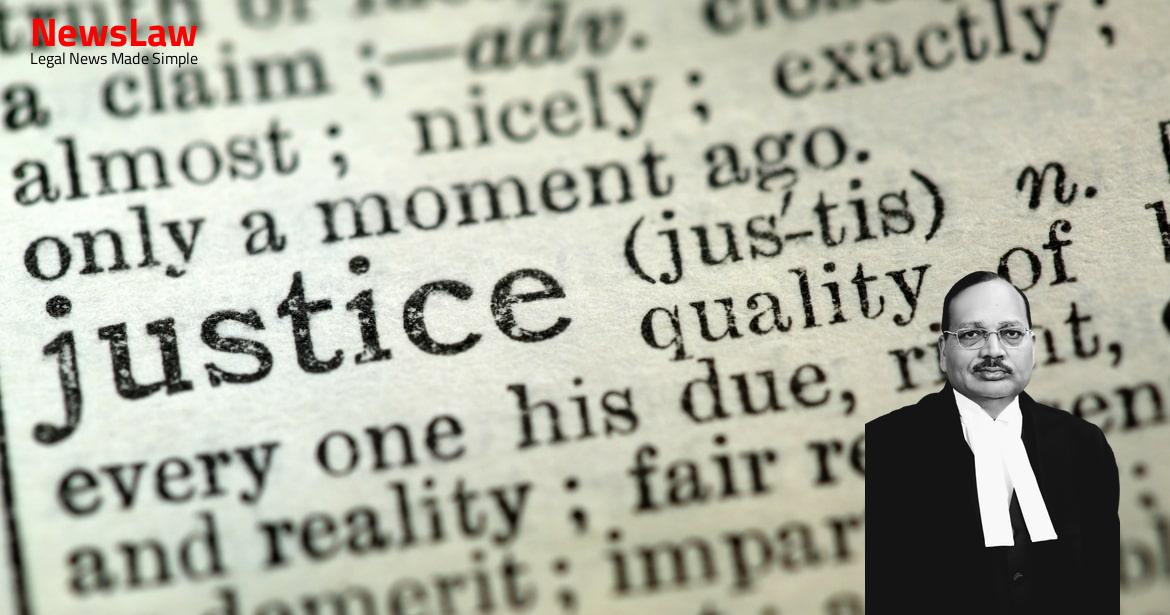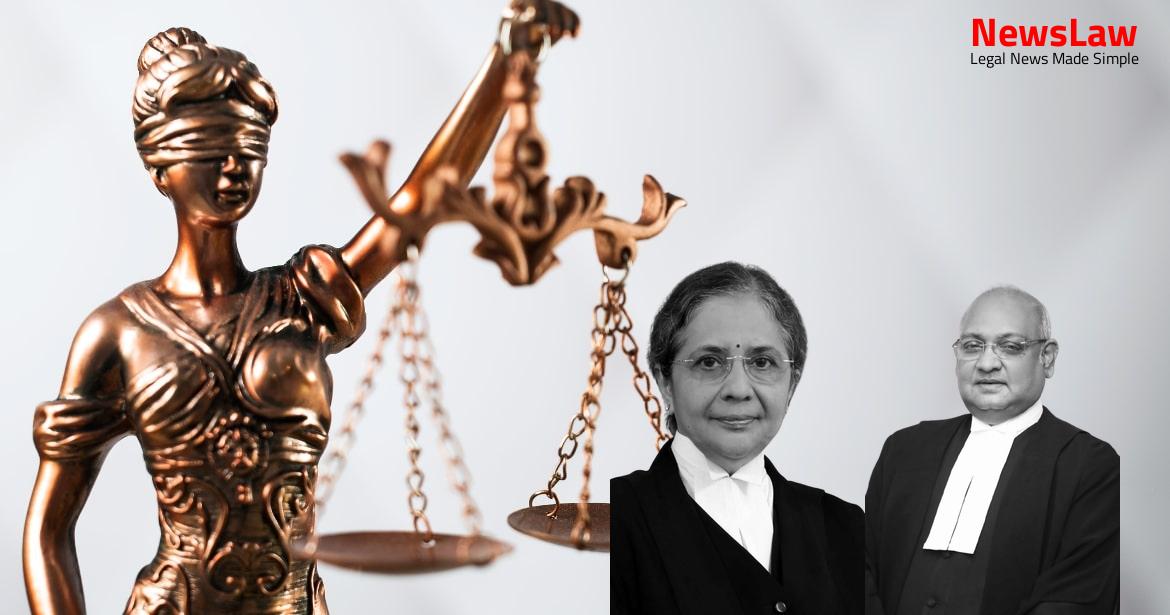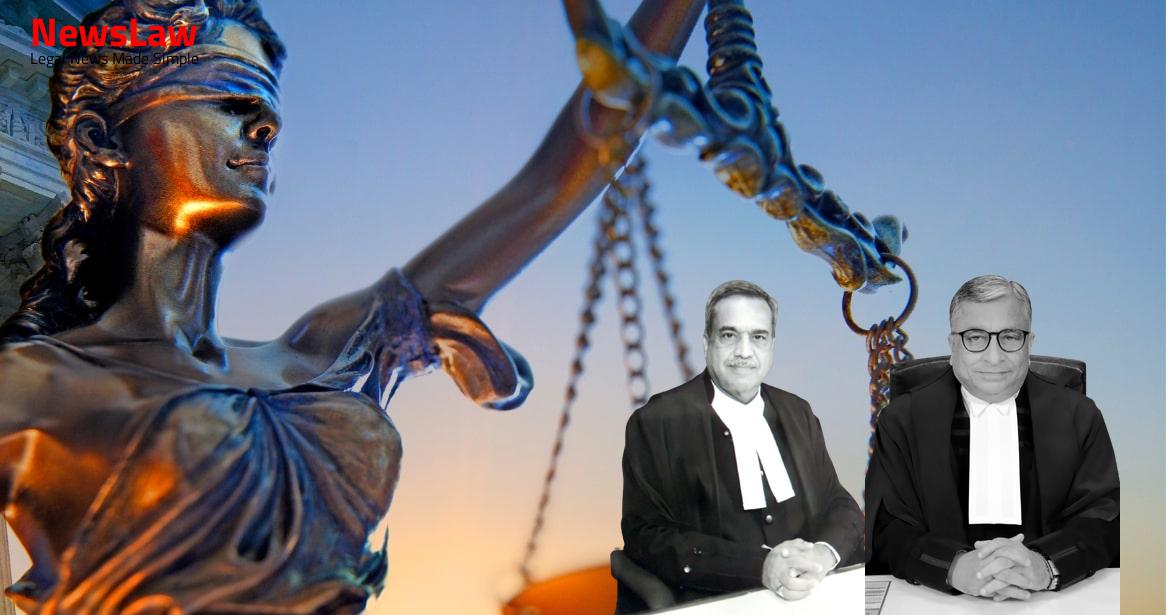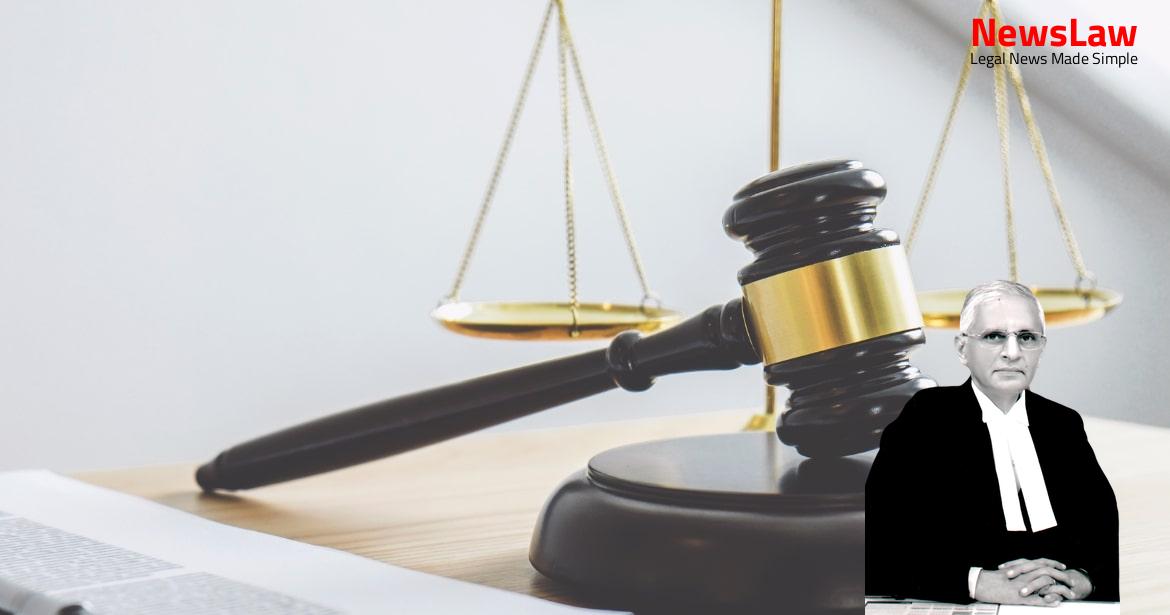Delve into the complex legal landscape of land acquisition proceedings with a recent Supreme Court judgment concerning the doctrine of merger and res judicata. The case involves M/s BSK Realtors LLP and the Government of NCT of Delhi, shedding light on crucial legal principles in the field of land acquisition. Stay updated on the intricacies of this legal ruling and its implications for future cases. Learn more about the evolving legal frameworks that shape land acquisition processes in India.
Facts
- Government of NCT of Delhi approached the Court through a SLP regarding the land acquisition proceedings under the 1894 Act, involving M/s BSK Realtors LLP’s land.
- The High Court’s judgment on January 11, 2016 in favor of GNCTD was challenged, citing the Manoharlal case.
- M/s BSK Realtors LLP raised a preliminary objection to the maintainability of the SLP, arguing the doctrine of merger and referring to the Pune Municipal Corporation case regarding section 24(2) of the 2013 Act.
- DDA was granted an extension by one year to initiate fresh acquisition proceedings under section 24(2) of the 2013 Act.
- A related matter already adjudicated against DDA in a previous judgment was noted.
- The Delhi Development Authority (DDA) carried a judgment and order in appeal but the Civil Appeal was dismissed by a Bench of two Hon’ble Judges of the Court.
- The SLP was deemed not maintainable and deserved outright dismissal.
- A Bench of two Hon’ble Judges directed the matter to be placed before a three-Judge Bench for deeper examination.
- The decision in Pune Municipal Corporation was overturned by a Constitution Bench of five Hon’ble Judges in Indore Development Authority v. Manoharlal and others, stating that land acquisition proceedings lapse only when specific conditions are met.
- The High Court found all the requirements of section 24(2) of the 2013 Act to be satisfied despite a previous award, leading to the declaration that the acquisition proceedings had lapsed.
Also Read: Pension Entitlement Dispute: Roadways Employees vs. Uttar Pradesh State Road Transport Corporation
Issue
- Whether suppression of the first round of litigation by the appellants constitutes a material fact for dismissal of the appeals
- Rejection of challenge to the declaration of lapsing at the instance of Authority or State by land-losers
- Consideration of whether dismissal of a civil appeal by one appellant in the first round affects the other appellant in the second round
- Issues of res judicata in the context of the second round of litigation
Also Read: Land Title Dispute: Supreme Court Ruling on Contempt Proceedings
Arguments
- M/s BSK Realtors LLP argued that the merger of orders from January 11, 2016, with the order from August 31, 2016, means the earlier order ceases to exist.
- GNCTD, being a party in the civil appeal filed by DDA, should not initiate new litigation to reverse the January 11, 2016 order as the decision from Manoharlal (supra) came after the dismissal of DDA’s civil appeal and overruled the decision in Pune Municipal Corporation (supra).
- The principle of res judicata was pressed upon by counsel for the landowners, stating that the dismissal of a Civil Appeal by one appellant in the first round should act as res judicata against the other party in subsequent rounds of litigation.
- The appellants’ counsel argued for allowing the civil appeals, mentioning that the doctrine of merger is not a constitutional or statutorily recognized principle but based on common law.
- The argument of the respondent regarding the doctrine of merger being invoked to maintain successive petitions against the same judgment was in desperation.
- The respondent’s reliance on the Constitution Bench’s observations in the case of Indore Development Authority vs Manoharlal & Ors was not considered convincing.
- It was noted that the Constitution Bench had approved the decision in Manoharlal vs. Indore Development Authority, thus rejecting the respondent’s contention.
- The court reiterated that the case of Shiv Kumar represented the correct exposition of the law on the issue raised by the respondent.
Also Read: Makhan Singh vs. State of Bihar: Upholding Rights Recognized by Consolidation Authorities
Analysis
- The court addresses the contention regarding the law laid down in regard to land acquisition proceedings.
- The court emphasizes the importance of not dismissing appeals based solely on prior dismissal of appeals filed by others.
- The court discusses the interpretation and application of Section 24(2) of the 2013 Act in the context of acquisition proceedings.
- The court refers to various cases and legal principles to support its analysis.
- The court discusses the consequences of non-payment or non-deposit of compensation in the context of land acquisition proceedings.
- The court delves into the applicability of res judicata and merger in the present case.
- The court considers the impact of subsequent purchasers and alleged fraudulent activities by landowners in the acquisition proceedings.
- The court explores the unique aspects of the present batch of cases and the challenges posed by inconsistent judicial opinions.
- The court lays down specific directions and conclusions based on its analysis of the legal principles involved.
- The rule of res judicata would not apply to the current proceedings as contested by the appellants.
- The three conditions for the application of res judicata between co-defendants are: (1) conflict of interest, (2) necessity to decide the conflict for plaintiff’s relief, and (3) finality of the decision between the defendants.
- A previous decision on a matter alone is res judicata; the reasons for the decision are not.
- The concept of suppression of facts necessitates the deliberate withholding of material facts critical to rendering a just decision.
- Material facts are those that significantly influence decision-making or alter its trajectory.
- A review of the ruling in Mathura Prasad Bajoo Jaiswal v. Dossibai N.B. Jeejeebhoy is suggested to understand the applicability of res judicata.
- The doctrine of merger may operate as a bar to entertaining civil appeals depending on the circumstances.
- The principle of res judicata applies when there is a directly and substantially disputed issue between parties that the court has conclusively resolved.
- The constitutional tenets of consistency, rule of law, and actus curiae neminem gravabit are fundamental to justice.
- Suppression of material facts disqualifies a litigant from obtaining relief to prevent abuses of court processes.
- A decision on an issue of law is res judicata in a subsequent proceeding with the same cause of action but not if there are changes in the law.
- The doctrine of res judicata cannot determine questions relating to the interpretation of enactments affecting court jurisdiction.
- Material facts must be relevant to the court’s consideration, regardless of the court’s ultimate decision.
- The limited fact-finding conducted by the Court may not be entirely accurate.
- Complex nature of cases involving subsequent sale transactions, earlier rounds of litigation, land titles, and compensation/possession status may affect the accuracy of the findings.
- Cautionary note provided before parting to highlight potential inaccuracies in the fact-finding process.
Decision
- The High Court is requested to constitute a dedicated bench to decide the writ petitions.
- Landowners have four weeks to submit objections from the date of this order.
- Parties can approach the High Court for disputes or clarifications in the future.
- Certain cases are necessary to be de-tagged for separate listing in July 2024.
- The Civil Appeals are allowed, setting aside the High Court’s judgments.
- The acquisition of landowners’ lands under the 1894 Act is upheld.
- A nominated bench will decide rightful compensation claimants through additional document submissions.
- Certain cases are remitted to the High Court for fraud adjudication, while others are set aside.
- Orders of the High Court under challenge in the Civil Appeals/M.A.s are revived.
- Pending applications are disposed of, and parties can seek reference under section 18 of the 1894 Act.
- The GNCTD is directed to take physical possession of lands for infrastructure projects.
Case Title: GOVERNMENT OF NCT OF DELHI Vs. M/S BSK REALTORS LLP (2024 INSC 455)
Case Number: C.A. No.-006604-006604 – 2024



